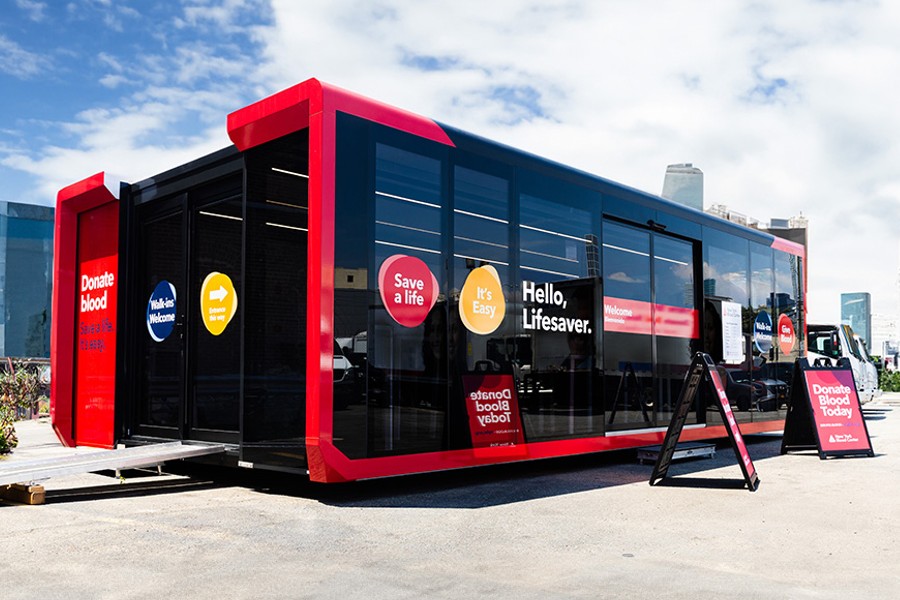
The Health Department released its 2022 Hepatitis A, B, and C Annual Report, which includes a summary of 2022 hepatitis A, B, and C surveillance data and programming for NYC.
The report also includes updates on progress toward implementing the Health Department and community partners’ Plan to Eliminate Viral Hepatitis as a Major Public Health Threat in New York City by 2030, a set of strategies to reduce the number of new hepatitis B and C infections, improve the health of people with hepatitis B and C, and reduce health inequities related to viral hepatitis infection in New York City, released in December 2021.
“We have an ambitious but attainable goal for the elimination of viral hepatitis as a major public health threat by 2030,” said Health Commissioner Dr. Ashwin Vasan. “We continue to see progress and – while we have more work to do – we feel confident in the winning combination of partnerships and programs designed to prevent new infections, improve health, and reduce inequities.”
There were 5,534 newly reported cases of chronic hepatitis B in New York City in 2022, an increase from 2021 and close to the level prior to the start of the COVID-19 pandemic. There were 2,805 newly reported cases of chronic hepatitis C, a decline from 2021 to 2022. Reported cases of hepatitis A decreased by almost 50% from 2021 to 2022. Inequities by gender, neighborhood poverty level, and age persist in newly reported cases of chronic hepatitis B and C in New York City: Among people newly reported with chronic hepatitis B in 2022, 58% were male, 49% were ages 30-49, 37% were from Brooklyn, 27% were from Queens, and 40% lived in neighborhoods of high or very high poverty; among people newly reported with chronic hepatitis C, 64% were male, 34% were ages 20-39 years, 31% were from Brooklyn, 25% were from the Bronx, and 39% lived in neighborhoods of high or very high poverty. New hepatitis C cases among young people are more likely to be infections due to recent exposure through sharing drug use equipment.
“While our most recent hepatitis A, B, and C surveillance data reflect progress in some areas of our efforts to eliminate hepatitis, it is clear we have more work to do, particularly in addressing the stark inequities we continue to see in newly reported cases of chronic hepatitis B and C in New York City,” said Dr. Sarah Braunstein, Assistant Commissioner for the Health Department’s Bureau of Hepatitis, HIV, and Sexually Transmitted Infections. “Compared to other infectious diseases, hepatitis remains severely underfunded. Increased investment to expand and build the capacity of our hepatitis workforce, shore up our surveillance infrastructure, and support patient navigation programs are critical to meeting the goals set forth in the City’s viral hepatitis elimination plan.”
The 2022 Hepatitis A, B, and C Annual Report includes updates on Health Department partnerships and funded programs designed to prevent new infections, improve health outcomes, and reduce health disparities. This includes the Health Department’s hepatitis B and C tele-navigation program, which in 2022 called 989 people with hepatitis B or C to offer health care navigation services, and perinatal hepatitis B program, which in 2022 provided case management services to 651 people with chronic hepatitis B and their infants to help prevent perinatal transmission.
From 2019 to 2022, the Health Department expanded its hepatitis C navigation programs to include overdose prevention services. In 2022, community providers and Health Department staff offered overdose prevention education to 6,240 people with hepatitis C and linked 1,409 people to integrated care for hepatitis C treatment and medication for opioid use disorder. The Health Department funds 14 syringe service programs to provide services to people who use drugs, including hepatitis B vaccination, hepatitis C testing and care coordination, overdose prevention and harm reduction education, access to buprenorphine treatment, and distribution of sterile syringes and other drug use equipment to prevent the transmission of viral hepatitis and other blood-borne diseases. In 2022, syringe service programs provided services to 22,004 New Yorkers.
In June 2023, the New York City Council announced continued funding for the Health Department’s Viral Hepatitis Initiative, which supports community organizations to provide hepatitis B and C prevention services, linkage to care, and training. From July 1, 2021, to June 30, 2022, 32 community organizations provided health education and linkage to care services to 3,029 people at risk for or living with hepatitis B or C, and supported the training of 203 peer and patient navigators and 1,195 clinical providers in hepatitis B and C prevention, testing, linkage to care, evaluation, and treatment.
“New York City Health + Hospitals is a proud partner with the Health Department in reducing morbidity and mortality related to viral hepatitis,” said Dr. Emma Kaplan-Lewis, HIV Clinical Director at the Office of Population Health at NYC Health + Hospitals. “Hepatitis is preventable and treatable, and some forms can be cured. The City’s public health care system prioritizes screening New Yorkers for viral hepatitis, providing vaccinations for hepatitis A and B, and for individuals diagnosed with hepatitis C providing treatment and navigating them through to cure. By joining together, we reduce barriers to care, improve access, and reduce inequities in order to eliminate viral hepatitis in our city, once and for all.”
“National Harm Reduction Coalition has been a strong partner with the Viral Hepatitis Program at the Health Department for over a decade in working towards hepatitis C elimination for all New Yorkers,” said Emma Roberts, Senior Director of National Capacity Building at National Harm Reduction Coalition. “We are so grateful for this partnership and our role in supporting the work of the Hep Free NYC coalition and providing training and capacity-building services to hepatitis C navigators within the harm reduction programs across New York City. The results in the report and those from previous years speak for themselves. This work is essential in improving the health and well-being of people across the city and is seen as a flagship for other states looking to emulate this work as we strive to improve access to hepatitis C care and treatment across the U.S.”
“As of March 2023, the CDC advises universal screening and universal vaccination of hepatitis B for all adults,” said Julie Yoshimachi, Hepatitis B Program Director at Charles B. Wang Community Health Center. “This is crucial in our efforts to eliminate viral hepatitis in New York City. Key next steps include support from all involved health care entities and educating providers. It is also important to increase linkage to care efforts of over 240,000 individuals living with hepatitis B in New York City. Our collective effort to ensure that everyone is educated, screened, and treated is imperative.”
“…achieve cures for those living with hepatitis C infection…”
“The granular New York City surveillance data on viral hepatitis are the cornerstone of our efforts to combat inequities in access to prevention and treatment services,” said Jeffrey Weiss, Director of the REACH Program at Mount Sinai Hospital. “In the case of hepatitis C, these data fuel pioneering cross-sector collaborations, spearheaded by the Health Department, enabling us to efficiently screen, connect individuals who inject drugs with the care they need, and ultimately achieve cures for those living with hepatitis C infection.”
For information on hepatitis A or to find a location offering low- to no-cost hepatitis A vaccination, visit nyc.gov/health/hepatitis and search for “hepatitis A” or call 311.
For information on hepatitis B or to find a location offering low- to no-cost hepatitis B testing, vaccination, or treatment, visit nyc.gov/health/hepb or call 311.
For information on hepatitis C or to find a location offering low- to no-cost hepatitis C testing or treatment, visit nyc.gov/health/hepc or call 311.
For information on Hep Free NYC, a community coalition of clinical and community health providers, researchers, advocates, and people with lived experience of hepatitis B and/or C, or to get involved, visit HepFree.nyc.
Photo credit: Source.
- Wells Fargo Shares Economic Impact From Open For Business Fund
- Harlem Rallies For Kamala Harris: A Historic Gathering Of Black Women Leaders
- In Conversation With Ketanji Brown Jackson At The Apollo Theater In Harlem
- Chancellor David C. Banks Appoints Simone Hawkins As Deputy Chancellor For Early Education
- Vibrant Summer Styles Are Making A Comeback 2024
Become a Harlem Insider!
By submitting this form, you are consenting to receive marketing emails from: Harlem World Magazine, 2521 1/2 west 42nd street, Los Angeles, CA, 90008, https://www.harlemworldmagazine.com. You can revoke your consent to receive emails at any time by using the SafeUnsubscribe® link, found at the bottom of every email. Emails are serviced by Constant Contact









